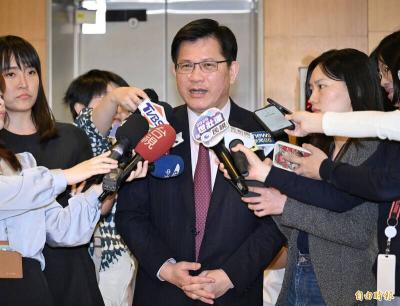Taiwan’s health authority on Thursday said it has plans to expand existing National Health Insurance (NHI) coverage to include three types of cancer immunotherapies, effective from June at the earliest.
The NHI coverage will include first-line treatments for non-squamous non-small cell lung cancer (NSCLC) and metastatic colorectal cancer, as well as the early stages of triple-negative breast cancer (TNBC), the National Health Insurance Administration (NHIA) said.
Roughly 2,700 to 3,400 patients are expected to immediately benefit from this new measure, with approximately NT$3.295 billion (US$101.28 million) to be allocated from a dedicated cancer fund each year to subsidize those cancer immunotherapies, according to NHIA.

Photo: CNA
Huang Yu-wen (黃育文), director of the administration’s Medical Review and Pharmaceutical Benefits Division, said cancer patients can expect to save about NT$1.71 million (US$52,564) to NT$2.47 million in medical expenses each year.
The biggest beneficiary would be NSCLC patients, of which there are 1,581 to 1,930 in Taiwan, followed by those with TNBC and metastatic colorectal cancer at 826-897 and 265-587, respectively, Huang said.
The goal is to introduce this new coverage plan in June, he added.
According to the NHIA, the decision was made to align with international treatment guidelines, citing the United States’ National Comprehensive Cancer Network (NCCN) as a reference.
Based on information from the NCCN, pembrolizumab and atezolizumab are two types of drugs that are being used to effectively treat NSCLC, it said.
The plan to include those three types of cancer immunotherapies into the NHI system which covers pembrolizumab and atezolizumab came after much discussion with various local medical communities and patient groups, the NHIA added.

Taiwan would welcome the return of Honduras as a diplomatic ally if its next president decides to make such a move, Minister of Foreign Affairs Lin Chia-lung (林佳龍) said yesterday. “Of course, we would welcome Honduras if they want to restore diplomatic ties with Taiwan after their elections,” Lin said at a meeting of the legislature’s Foreign Affairs and National Defense Committee, when asked to comment on statements made by two of the three Honduran presidential candidates during the presidential campaign in the Central American country. Taiwan is paying close attention to the region as a whole in the wake of a

Chinese Nationalist Party (KMT) Chairman Eric Chu (朱立倫), spokeswoman Yang Chih-yu (楊智伃) and Legislator Hsieh Lung-chieh (謝龍介) would be summoned by police for questioning for leading an illegal assembly on Thursday evening last week, Minister of the Interior Liu Shyh-fang (劉世芳) said today. The three KMT officials led an assembly outside the Taipei City Prosecutors’ Office, a restricted area where public assembly is not allowed, protesting the questioning of several KMT staff and searches of KMT headquarters and offices in a recall petition forgery case. Chu, Yang and Hsieh are all suspected of contravening the Assembly and Parade Act (集會遊行法) by holding

President William Lai (賴清德) has appointed former vice president Chen Chien-jen (陳建仁) to attend the late Pope Francis’ funeral at the Vatican City on Saturday on his behalf, the Ministry of Foreign Affairs said today. The Holy See announced Francis’ funeral would take place on Saturday at 10am in St Peter’s Square. The ministry expressed condolences over Francis’ passing and said that Chen would represent Taiwan at the funeral and offer condolences in person. Taiwan and the Vatican have a long-standing and close diplomatic relationship, the ministry said. Both sides agreed to have Chen represent Taiwan at the funeral, given his Catholic identity and

Taiwan would welcome the return of Honduras as a diplomatic ally if the next president of that country decides to make such a move, Minister of Foreign Affairs Lin Chia-lung (林佳龍) said today. “We would welcome Honduras if they want to restore diplomatic ties with Taiwan after their elections,” Lin said during a legislative hearing. At the same time, Taiwan is paying close attention to the Central American region as a whole, in the wake of a visit there earlier this year by US Secretary of State Marco Rubio, Lin said. Rubio visited Panama, El Salvador, Costa Rica and Guatemala, during which he